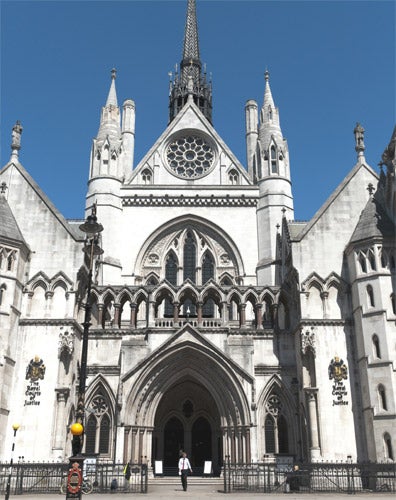Commons protest as Trafigura gag lifted

Carter-Ruck, the most feared firm of libel lawyers in the country, beat a retreat yesterday as information that its client had hoped to suppress was spread across the internet by bloggers and tweeters.
Had the lawyers had their way, no one would have been allowed to report that an MP had asked a question that mentioned a report into alleged dumping of toxic waste in the Ivory Coast by the multinational firm Trafigura.
The company's lawyers, Carter-Ruck, obtained an injunction preventing anyone from mentioning this report. It banned those covered by it from saying who had asked the question of Parliament, to whom it was addressed, or what it was about. Almost the only fact that they could mention was that the injunction had been obtained by Carter-Ruck.
The firm had successfully obtained what is sometimes called a "super-injunction" which meant that those served with it were not only banned from writing about its subject matter, they were also not allowed to report that they had been gagged. Unusually, the injunction was not spread around the media generally, apparently to avoid drawing attention to the story, but was served only on The Independent, The Guardian and others, who were investigating Trafigura.
In a perfect world, from a lawyer's point of view, that should have been enough. It meant that any media outlet that had shown an interest in Trafigura was silenced, while the rest were not told that anyone had been gagged. It all fell apart because the idea that commercial interests can get gagging orders that apply even to what is said in Parliament runs counter to the 1688 Bill of Rights, which protects all parliamentary proceedings from libel lawyers. The fact that Carter-Ruck had apparently silenced the House of Commons to protect a client's reputation was so unusual that even The Wall Street Journal thought it worth reporting.
Carter-Ruck's other problem was that all questions by MPs are published on Parliament's website. Once it was known that they had a gagging order that covered an MP's question, all anyone needed to do find out more was go to www.parliament.uk and enter "Carter-Ruck" in the search engine. Those who did were immediately directed to a question from the Labour MP Paul Farrelly, a member of the Commons Culture and Media Committee, to the Justice Secretary, Jack Straw. It asked "what assessment he has made of the effectiveness of legislation to protect (a) whistleblowers and (b) press freedom following the injunctions obtained in the High Court by... Trafigura and Carter-Ruck solicitors on 11 September 2009 on the publication of the Minton report on the alleged dumping of toxic waste in the Ivory Coast, commissioned by Trafigura".
The question was quickly picked up and posted on The Spectator website, and by Paul Staines, who blogs under the pseudonym Guido Fawkes, and spread rapidly through the internet, becoming one of the day's top items on Twitter. Among the first to find out yesterday there was a gagging order covering Mr Farrelly's question was Mr Farrelly himself, who rang the Speaker, John Bercow, in a fury. He later stood up in the Commons and asked the Speaker "to consider whether Carter-Ruck's behaviour constitutes potential contempt of parliament".
Yesterday afternoon a court was due to hear an application to have the terms of the injunction altered, but before the hearing began, Carter-Ruck announced that Trafigura did not want to prevent what was said in Parliament being reported, although the original injunction gave them that power.
"There has never been any question of Trafigura applying for an injunction that had as its purpose the prevention of publication of any matter arising in Parliament," they said in a statement last night.
"The issuing by the courts of so-called 'super-injunctions' is rightly controversial and a matter of growing concern," Mr Farrelly said afterwards. "That is why, using parliamentary privilege, I tabled these questions to Jack Straw at the Ministry of Justice as a matter of urgency. The practice offends the time-honoured 'rule against prior restraint', which safeguards freedom of expression in this country. The huge legal bills involved in fighting cases, too, have a chilling effect on legitimate investigative journalism."
Join our commenting forum
Join thought-provoking conversations, follow other Independent readers and see their replies
Comments